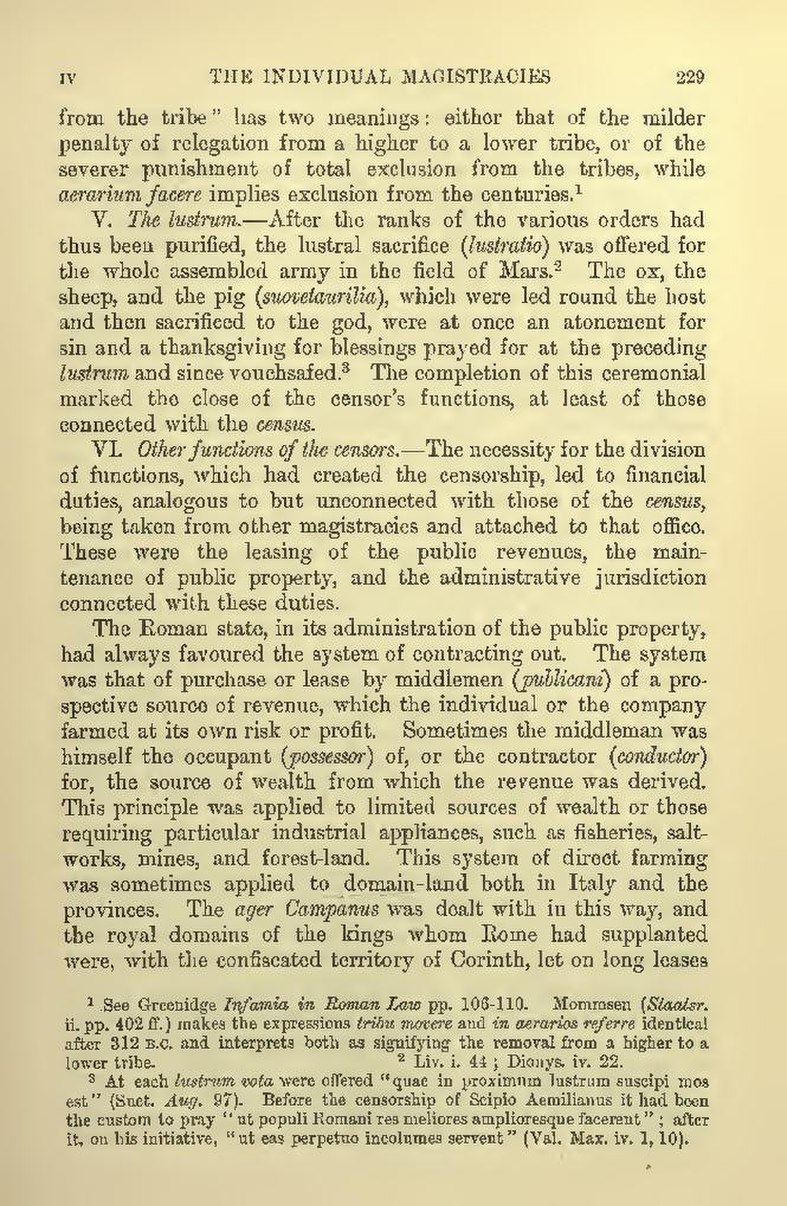from the tribe" has two meanings: either that of the milder penalty of relegation from a higher to a lower tribe, or of the severer punishment of total exclusion from the tribes, while aerarium facere implies exclusion from the centuries.[1]
V. The lustrum.—After the ranks of the various orders had thus been purified, the lustral sacrifice (lustratio) was offered for the whole assembled army in the field of Mars.[2] The ox, the sheep, and the pig (suovetaurilia), which were led round the host and then sacrificed to the god, were at once an atonement for sin and a thanksgiving for blessings prayed for at the preceding lustrum and since vouchsafed.[3] The completion of this ceremonial marked the close of the censor's functions, at least of those connected with the census.
VI. Other functions of the censors.—The necessity for the division of functions, which had created the censorship, led to financial duties, analogous to but unconnected with those of the census, being taken from other magistracies and attached to that office. These were the leasing of the public revenues, the maintenance of public property, and the administrative jurisdiction connected with these duties.
The Roman state, in its administration of the public property, had always favoured the system of contracting out. The system was that of purchase or lease by middlemen (publicani) of a prospective source of revenue, which the individual or the company farmed at its own risk or profit. Sometimes the middleman was himself the occupant (possessor) of, or the contractor (conductor) for, the source of wealth from which the revenue was derived. This principle was applied to limited sources of wealth or those requiring particular industrial appliances, such as fisheries, salt-works, mines, and forest-land. This system of direct farming was sometimes applied to domain-land both in Italy and the provinces. The ager Campanus was dealt with in this way, and the royal domains of the kings whom Rome had supplanted were, with the confiscated territory of Corinth, let on long leases
- ↑ See Greenidge Infamia in Roman Law pp. 106-110. Mommsen (Staatsr. ii. pp. 402 ff.) makes the expressions tribu movere and in aerarios referre identical after 312 B.C. and interprets both as signifying the removal from a higher to a lower tribe.
- ↑ Liv. i. 44; Dionys. iv. 22.
- ↑ At each lustrum vota were offered "quae in proximum lustrum suscipi mos est" (Suet. Aug. 97). Before the censorship of Scipio Aemilianus it had been the custom to pray "ut populi Romani res meliores amplioresque facerent"; after it, on his initiative," ut eas perpetuo incolumes servent" (Val. Max. iv. 1, 10).
